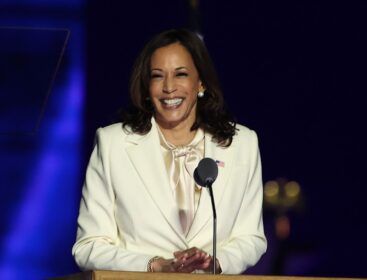Bangladesh Extends Curfew Amid Deadly Clashes Over Civil Service Hiring Quotas
Dhaka, Bollywood Fever: Bangladeshi authorities extended a curfew across the country on Sunday as the nation’s top court was expected to rule on a civil service hiring quota, which has led to days of deadly clashes between police and protesters, resulting in scores of deaths.
Nationwide demonstrations, primarily led by student groups, erupted weeks ago in opposition to a quota system that reserves up to 30% of government jobs for relatives of veterans who fought in Bangladesh’s war of independence in 1971. Violence broke out on Tuesday, with the Daily Prothom Alo newspaper reporting at least 103 deaths as of Saturday.
Bangladeshi authorities have not released official numbers of those killed and injured.
Throughout the week, police fired tear gas, rubber bullets, and smoke grenades to disperse stone-throwing protesters who filled the streets and university campuses. Sporadic clashes were reported in parts of Dhaka, the capital, on Saturday, but it was unclear if there were any fatalities.

On Sunday, as the Supreme Court prepared to deliver a verdict on whether to abolish the job quotas, soldiers patrolled cities across the country, and a nationwide internet blackout remained in effect. Home Minister Asaduzzaman Khan announced that the curfew would be relaxed from 3 p.m. to 5 p.m. on Sunday to allow people to run essential errands.
Prime Minister Sheikh Hasina’s government declared Sunday and Monday as public holidays, permitting only emergency services to operate.
The unrest underscores cracks in Bangladesh’s governance and economy, highlighting the frustration of young people who struggle to find good jobs after graduation. It also represents the biggest challenge to Hasina since winning a fourth consecutive term in office after January’s elections, which were boycotted by the main opposition groups.
Protesters argue that the quota system is discriminatory and benefits Hasina’s supporters, suggesting it should be replaced with a merit-based system. Hasina defends the quota system, stating that veterans deserve the highest respect for their contributions in the war against Pakistan, regardless of their political affiliation.
Representatives from both sides met late Friday in an attempt to reach a resolution. Law Minister Anisul Huq indicated that the government was open to discussing the protesters’ demands.
The main opposition Bangladesh Nationalist Party (BNP) has backed the protests and vowed to organize its own demonstrations. However, the BNP stated that its supporters were not responsible for the violence and denied ruling party accusations of exploiting the protests for political gain.
The Awami League and the BNP have a history of accusing each other of inciting political chaos and violence, most recently before the national election, which was marred by a crackdown on opposition figures. Hasina’s government accused the opposition party of attempting to disrupt the vote.
In 2018, the government halted the job quotas following mass student protests. However, in June, Bangladesh’s High Court nullified that decision and reinstated the quotas after relatives of 1971 veterans filed petitions. The Supreme Court suspended the ruling, pending an appeal hearing.
Hasina has called on protesters to wait for the court’s verdict.
Also Read Other Articles, Zuckerberg Praises Trump as a “Badass” After Assassination Attempt
U.S. Rep. Sheila Jackson Lee Passes Away at 74
Couple Found Dead in Lifeboat After Disappearing During Atlantic Voyage
Andrew Tate Criticizes Adin Ross as “Dumb” During Money Debate and Abruptly Exits Live Stream












